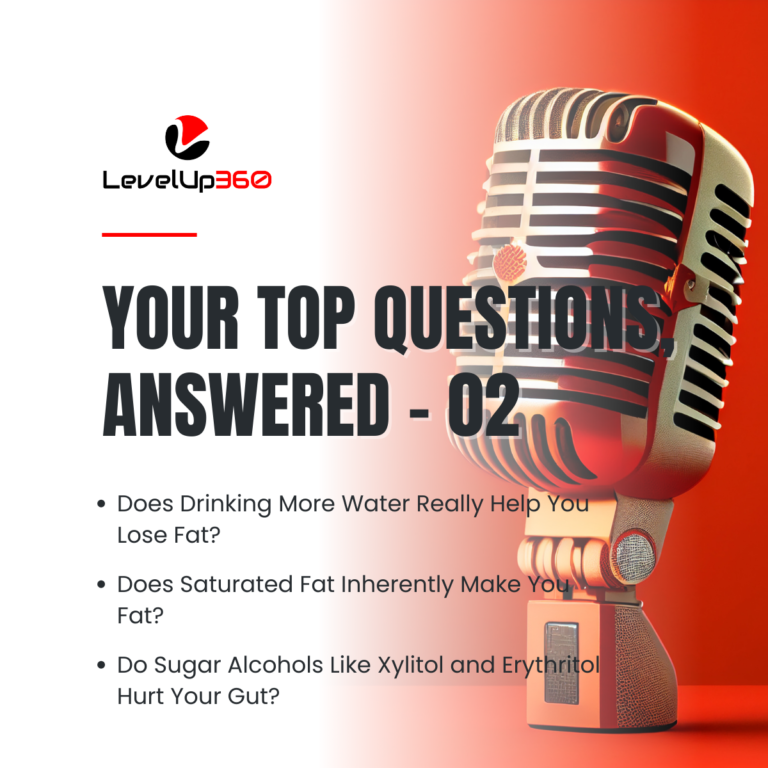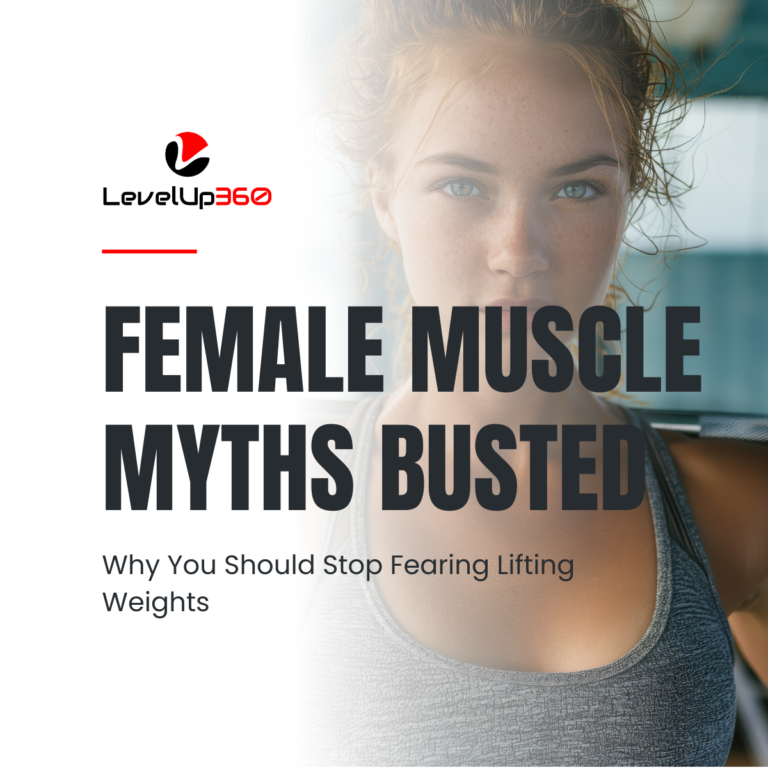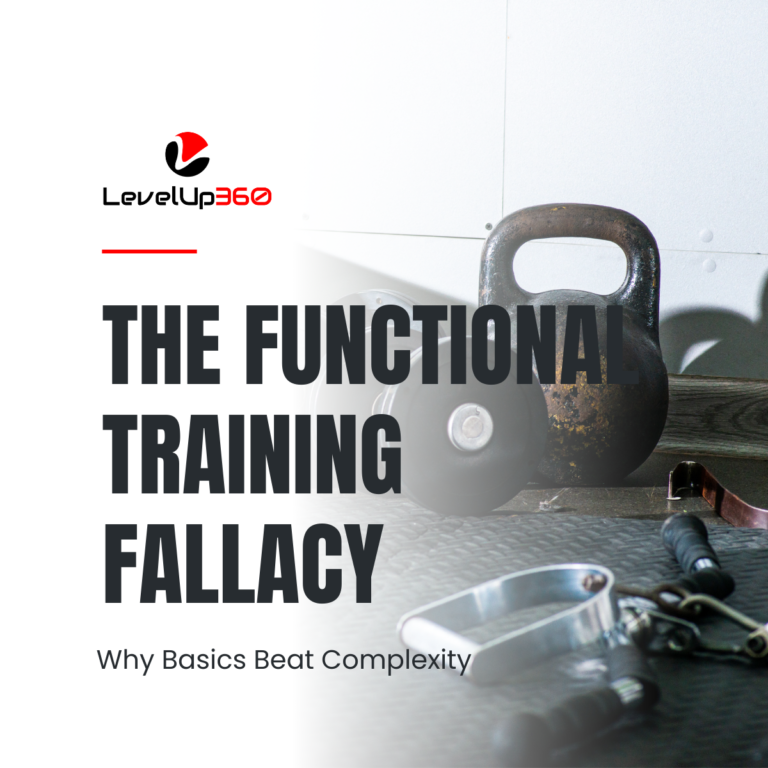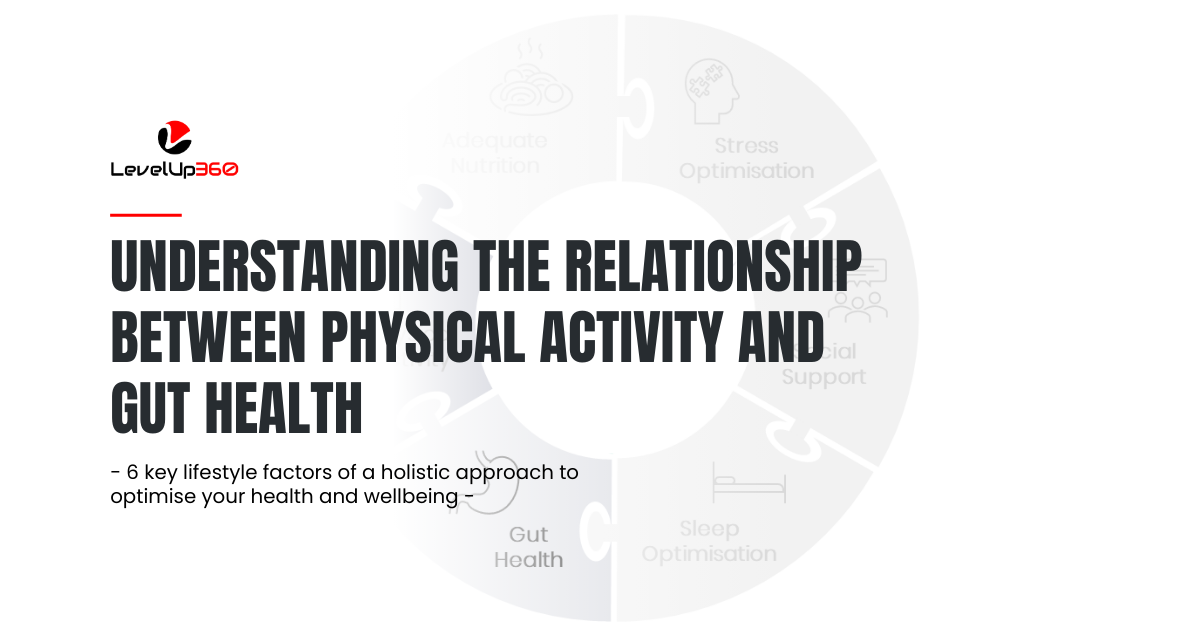
Understanding the relationship between stress and gut health
This is Part 4 of a series of articles focusing on the interplay between adequate nutrition, physical activity, gut health, sleep optimization, stress optimization, and social support, and their importance in achieving and maintaining optimal health.
In Part 3, we explored the relationship between stress and gut health (I would recommend you read Part 1, Part 2, and Part 3 if you have not already, and then come back to this article).
Also, I have created a Sleep Cheat Sheet that may help you improve your sleep quality. Check it out!
In this article, we will explore the complex relationship between exercise and gut health, including how one impacts the other.
The impact of physical activity on gut health
Physical activity has some negative impact on gut health in some cases
While exercise can have many positive effects on gut health, it can also negatively impact gut health in some cases. Exercise can have negative effects on the gut by:
- Causing dehydration: Intense or prolonged exercise can cause dehydration, which can lead to digestive problems such as constipation, bloating, and cramping.
- Increasing gut permeability: High-intensity exercise, particularly endurance exercise, has been shown to increase gut permeability, which can lead to the release of harmful substances into the bloodstream and increase the risk of gut-related disorders.
- Disturbing the gut microbiome: Extreme or unaccustomed physical activity can disrupt the delicate balance of gut bacteria, leading to an overgrowth of harmful bacteria and increased risk of gut-related disorders.
- Causing stomach irritation: Intense exercise can cause abdominal discomfort and even pain due to the jostling and compressing of the stomach and intestines. This can lead to indigestion, nausea, and other digestive problems.
Gut health plays a crucial role in physical activity.
Physical activity has a positive impact on gut health
Conversely, exercise has been shown to have a positive impact on gut health by:
- Improving gut motility: Physical activity can help regulate gut transit time and improve the movement of food and waste through the digestive tract.
- Modulating gut microbiome: Regular exercise has been shown to positively affect the gut microbiome by promoting the growth of beneficial bacteria and reducing the abundance of harmful bacteria.
- Reducing inflammation: Regular exercise has been shown to reduce inflammation in the gut and throughout the body, which can benefit gut health by reducing the risk of gut-related disorders, such as inflammatory bowel disease (IBD).
- Reducing stress: Exercise can also help reduce stress and anxiety, which can have a positive impact on gut health. Chronic stress has been shown to disrupt the gut microbiome and increase the risk of gut-related disorders.
- Improving immune function: Exercise has been shown to improve immune function, which can benefit gut health by reducing the risk of infections and other gut-related problems.
The impact of gut health on physical activity

The impact of unhealthy gut on exercise
Gut health plays a crucial role in physical activity. An unhealthy gut can have a significant impact on exercise by:
- Decreasing energy levels: An unhealthy gut can lead to nutrient malabsorption and decreased energy levels, making it difficult to participate in physical activity.
- Causing digestive discomfort: Gut-related problems such as bloating, cramping, and diarrhoea can cause discomfort and negatively impact performance during exercise.
- Increasing inflammation: An unhealthy gut can increase inflammation throughout the body, which can lead to muscle soreness, fatigue, and decreased performance.
- Decreasing immune function: An unhealthy gut has been linked to decreased immune function, which can increase the risk of infections and other health problems that can impact exercise.
- Negatively affecting mental health: An unhealthy gut has been linked to mental health issues such as anxiety and depression, which can negatively impact motivation and participation in physical activity.
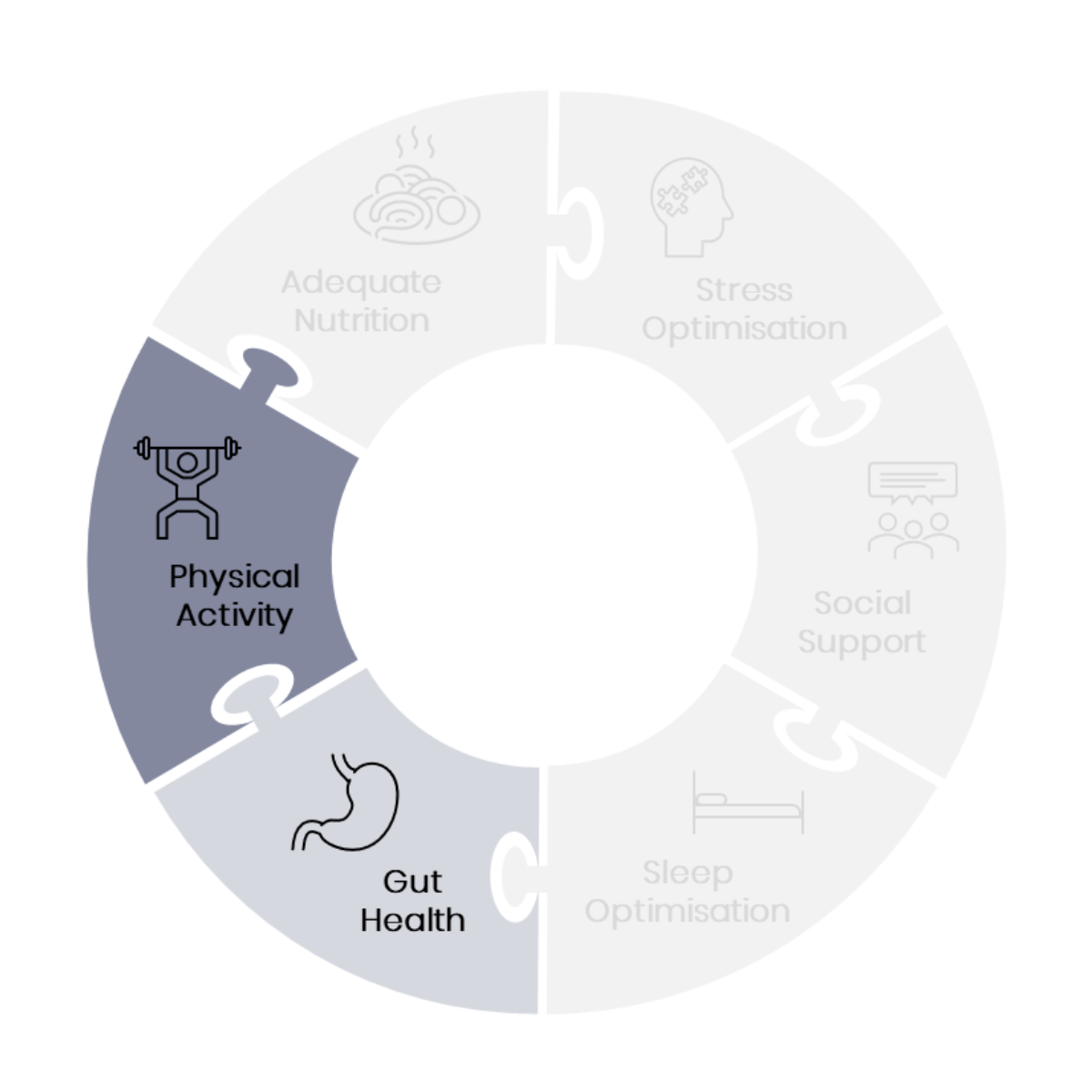
A healthy gut can have a significant impact on physical activity
Conversely, a healthy gut can have a significant positive impact on exercise by:
- Increasing energy levels: A healthy gut can lead to better nutrient absorption, which can result in increased energy levels and improved physical performance during exercise.
- Improving digestion: A healthy gut can reduce digestive problems such as bloating, cramping, and diarrhoea, allowing for more comfortable and efficient physical activity.
- Reducing inflammation: A healthy gut can reduce inflammation throughout the body, which can lead to reduced muscle soreness, increased endurance, and improved athletic performance.
- Improving immune function: A healthy gut has been linked to improved immune function, which can decrease the risk of infections and other health problems that can impact exercise.
- Enhancing mental health: A healthy gut has been linked to improved mental health, including reduced anxiety and depression, which can positively impact motivation and participation in physical activity.
LevelUp360 Gut Health TIP: Be consistent with your exercise routine.
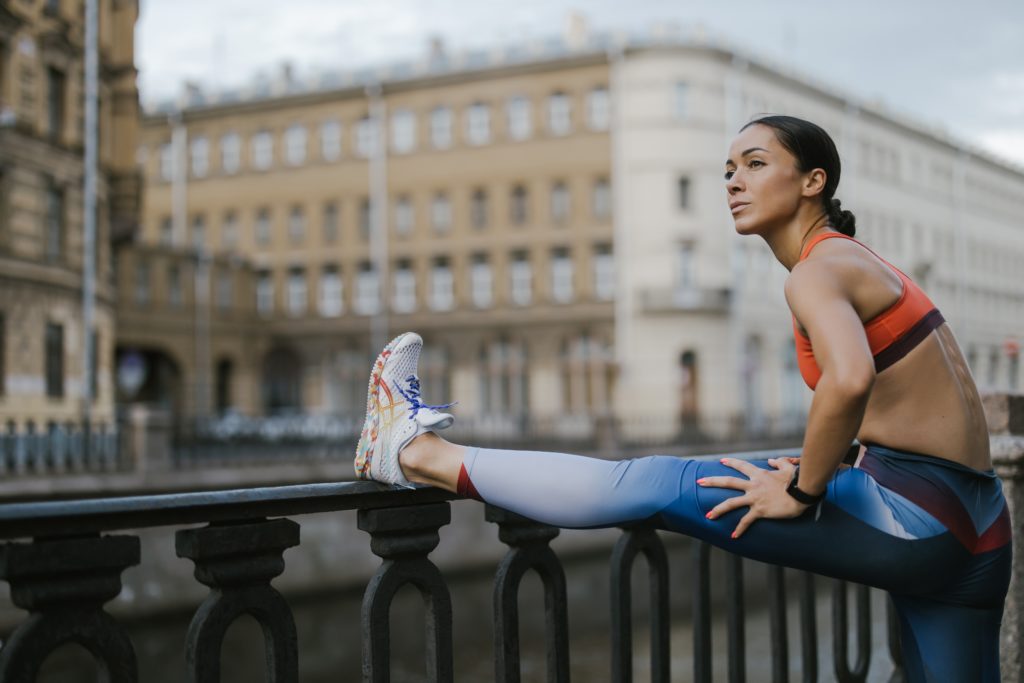
To keep the production of good microbes in your gut going, you’re going to have to keep exercising, making it part of your overall lifestyle.
In a research published in 2018 in the journal Medicine and Science in Sports and Exercise study, participants’ gut microbiomes changed within six weeks of exercise but then reverted back within six weeks once they stopped working out, too.
Overall, the current research suggests that regular moderate-intensity exercise can have many positive effects on gut health.
For now, the research connecting exercise to improved gut health has focused on aerobic exercise, and less so on resistance training. That doesn’t mean pumping iron won’t help your gut health, it’s just that the scientific community hasn’t explored this area yet.
As of now, it is recommended to engage in regular aerobic exercises, such as brisk walking or cycling, for at least 30 minutes a day, and to gradually increase the intensity of your workouts over time.
Additionally, it is important to listen to your body and adjust your exercise routine as needed to minimize gastrointestinal symptoms.
Continue reading...
Read our next part 5 series "Understanding the relationship between social support and gut health"
In today’s article, we explored the interlinked relationship between physical activity and gut health. In our next part 5 series, we will explore the relationship between social support and gut health.
You may also be interested in reading our article about “The role of gut health in sustainable weight loss“
Recommended reading
Recommended reading
More about "Resistance Training"
We will be delving into ways to promote muscle health and the benefits of resistance training for overall health and longevity. We will also look at general health guidelines and more.
You may want to check out related articles about Muscle and Resistance Training:
More about "Resistance Training"
We will be delving into ways to promote muscle health and the benefits of resistance training for overall health and longevity. We will also look at general health guidelines and more.
You may want to check out related articles about Muscle and Resistance Training:
Additional Resources
Feeling in control of your health
If you are interested in improving your health and wellness, check out other resources such as Our Blog, Free Resources and/or join our private Body-Mind Transformation Secrets Community on Facebook, and The 360 Transformation Blueprint Podcast on Spotify and go on an even deeper dive with me to uncover how to succeed in your health and wellness goals.
You may also be interested in our Sleep Secrets Cheat Sheet. It is a great resource with strategies to fix and optimize your sleep which is crucial to succeeding in your health and wellness goals.
Resources
References
https://www.frontiersin.org/articles/10.3389/fnut.2021.637010/full#h11
https://pubmed.ncbi.nlm.nih.gov/29166320/
https://europepmc.org/article/PMC/5302835
https://pubmed.ncbi.nlm.nih.gov/26626721/
https://www.nature.com/articles/s41591-019-0485-4.epdf
https://physoc.onlinelibrary.wiley.com/doi/10.1113/EP087404
Pictures



